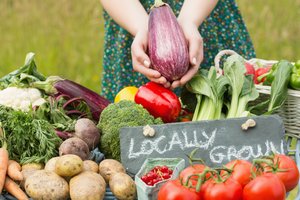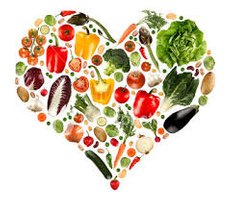Mary Henderson Nutrition
Keep checking for the latest blog posts.
Mary writes for The Hovarian. See here p39 for her latest article.
Follow Mary on Instagram @fitnessfoodandscience
Is sustainable healthy eating really possible?
The current situation has been overwhelming at times whatever your stance but rest assured that collectively and individually, we have the power to change things. Eating sustainably and healthily are not mutually exclusive. The pandemic has brought greater attention to our food system, both its potential role in virus outbreaks and the role of diet in immunity. However, this calls for less radical action than one might think. A recent example was the power that we all had to cause a shortage in loo roll! It was not so much a wartime hoarder mentality rather than everyone popping that extra pack into their trolley that disrupted supply and demand. Likewise, our diets are a huge modifiable factor that determines our health outcomes and the health of our planet. Our dietary choices contribute around 30% to greenhouse gases and 40% to deforestation. Everyone needs to follow a plant-based diet and this doesn’t mean having to forego all meat and dairy. A plant-based diet is one where healthy plant-based foods form around two thirds of your diet, and no, just eating chips doesn’t count. Nor does relying on vitamin supplementation. There’s fibres and phytochemicals to think about to name but a few. It is possible for both meat and meat-free eaters to have a balanced healthy diet, just remember the big picture like vitamin B12 supplements for non-meat-eaters and an extra effort for meat-eaters not to eat over 20g saturated fat per day. Studies show that we all far exceed the average ~70g daily protein requirements, vegans included. With 70% of all food waste being household waste, plan meals and shop thoughtfully. Switch to wholegrain varieties and add a portion or two of fruit or veg to every meal. Buy locally and seasonally. Eat sustainably caught fish. Have a meat-free day once or twice a week. Baked beans count! Iodine is one everyone needs to watch, particularly young teenage girls and pregnant women. Milk is a good source as are some alternative milks but check. Don’t overly focus on individual nutrients. Overall dietary composition, quality and patterns are what matter. Don’t forget vitamin D. We spend 90% of our time indoors! Energy balance is key so focus on main meals, limit snacks, get more exercise and think moderation. The food environment has to change, too; not everyone has access to healthful food choices. But small steps can make a real difference to our health and our beloved planet.


